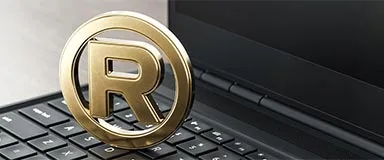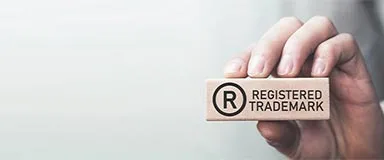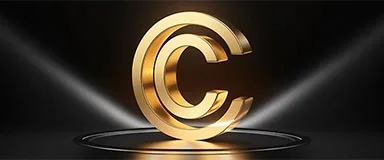Discover the risks and dangers of failing to register a trademark to understand the value and importance of trademark registration for your brand.

Your cart is empty
*Online Support: Mon-Fri, 9am-5pm (GMT-4). For assistance anytime, send us a message
Protect Your Brand in Lithuania Through a Simple Process Backed by Certified Local Attorneys
In Lithuania, you can protect your trademark in two ways: register a European Union Trademark, which covers all 27 member states, or register directly with the State Patent Bureau of Lithuania.
Before filing your trademark in Lithuania, you need to know if your mark can actually be registered. Our Comprehensive Trademark Study identifies conflicting trademarks, evaluates your mark's strength and registrability under local law, and delivers a clear risk rating — Low, Medium, or High — with a strategic recommendation. AI-powered analysis, attorney reviewed, delivered within one business day.
Specialized attorneys will file your trademark application in Lithuania and carry out all the necessary formalities to bring your application for approval and registration. As soon as your trademark is filed, we will send you a filing report that will include the application number and application date. Also, we will send you a scanned copy of the filed application.
Discover how our services help protect and strengthen your brand in Lithuania.
Check if your trademark is available for registration with our easy-to-use search tool.
Search TrademarkRenew your trademark to maintain uninterrupted protection for your brand.
Renew TrademarkSafeguard your local domain with ease through our trusted partner, Register.Domains.
Search .LT Domains
Discover the risks and dangers of failing to register a trademark to understand the value and importance of trademark registration for your brand.

Discover how national and international trademark registration compare, the pros and cons of each, and which is right for you.

Learn answers to some of the most commonly asked questions on trademark registrations to improve your trademark knowledge.
Why should I get a Comprehensive Trademark Study before filing my trademark?
Filing a trademark application without proper analysis can result in refusal, opposition, or unnecessary costs. Our Comprehensive Trademark Study evaluates potential conflicts, analyzes registrability under local trademark law, and provides a clear risk rating so you can make an informed decision before proceeding with registration.
If the Study supports moving forward, our team can immediately handle the trademark filing and guide you through the full registration process.
What is the difference between a trademark search and a Comprehensive Trademark Study?
A basic trademark search simply lists similar marks found in official databases. Our Comprehensive Trademark Study goes further by analyzing those results, assessing legal and commercial risk, evaluating the strength of your mark, and delivering a clear strategic recommendation.
Every Study includes the full Search Report at no additional cost and is reviewed by a trademark professional.
What does the Comprehensive Trademark Study include?
Each Study includes:
How long does the Comprehensive Trademark Study take?
Your Study is delivered within one business day after submission. This allows you to quickly determine whether to proceed with filing your trademark application.
What happens after I receive my Comprehensive Trademark Study?
Based on the risk level and recommendation, you may:
If you decide to proceed, we handle the preparation and submission of your trademark application and manage the process until registration.
What are the basic steps to register a trademark in Lithuania?
1. Order a Comprehensive Trademark Study (recommended).
2. Prepare your application details (mark, owner, goods/services).
3. We file your trademark application with the Trademark Office.
4. The trademark office examines the application.
5. If approved, the mark is published for opposition.
6. If no objections succeed, the trademark proceeds to registration.
What rights do I obtain once my trademark is registered?
A registered trademark generally grants you exclusive rights to use the mark for the registered goods and services within that jurisdiction.
Are oppositions or office action responses included in the filing service?
No. The Trademark Application Filing service covers the preparation and submission of your trademark application, including official filing fees and professional service fees related to the initial filing.
If the Trademark Office issues an objection (office action) or if a third party files an opposition, these matters require additional legal analysis and response. In such cases, we will provide a separate quotation outlining the recommended strategy and associated costs before taking any further action.
This approach ensures transparency and allows you to decide how to proceed based on the specific circumstances of your case.
Which countries are covered by a trademark registration in Lithuania?
If I previously filed my trademark in another country, can I claim priority in Lithuania?
Can my trademark be filed immediately and the Power of Attorney (POA) submitted later?
How long does it take for a trademark to be registered in Lithuania?
Do I need to provide a Power of Attorney?
Still have questions?